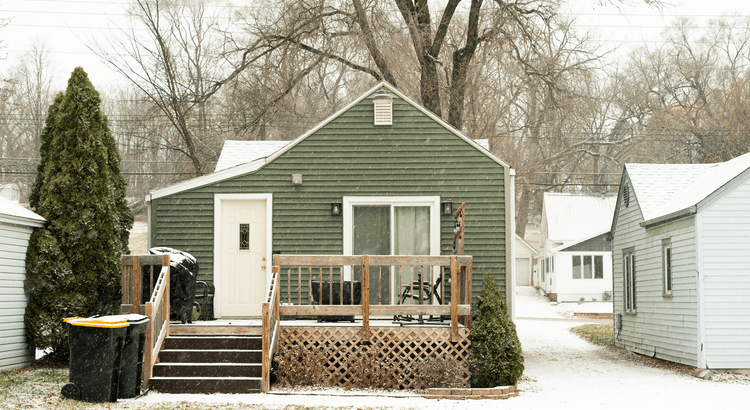Young vs. Old: The Wealth Gap Widens
Americans’ net worth has essentially
doubled since the turn of the new century in 2000 to $88 trillion. But
looking closer at the data, it's clear that something is wrong, NAR
Chief Economist Lawrence Yun writes in his latest Forbes column.
By 2013, the wealth difference between young and old households grew to more than 20-to-1 ($210,500 vs. $10,500).
“As with any big question of the day, there are no doubt multifaceted causes,” Yun writes. “However, one important contributing factor is home ownership opportunity. The home ownership rate among the older generation (65+) has been fairly steady over the recent housing cycle of bubble-bust-recovery with nearly 80 percent owning a property. But for those under 35 households, the home ownership rate has fallen from the recent cyclical peak of 43 percent to now 34 percent.”
Young households may be getting a tough break. Yun cites overly-stringent mortgage underwriting and high credit score requirements that are delaying them into home ownership. Also, growing student loan debt – which has tripled in size in the past decade – is also causing delays. The average balance for a recent graduate is $29,000. A recent survey by NAR and the American Student Assistance found that 71 percent of young grads who have not defaulted on their debt obligations say they plan to purchase a home but they will likely have to wait more than five years because of their debt load.
“Some of the younger generation may benefit from family inheritance in the future since there is sizable wealth to be passed along,” Yun writes. “Some may even brag of their small fortune, even if after they inherited a big fortune. But Americans respect the Horatio Alger type of stories of self-made progress, and not stories of parent wealth transfer.”
Source: “A Reason for Widening Intergenerational Inequality,” Forbes.com (June 16, 2016)
Read more: Help on the Way for Younger BuyersThe widening inequality gap in recent years between older and younger households is alarming, he says. In the early 1980s, for example, the median net worth of young households under the age of 35 was $15,260. For older households ages 65 and older, net worth was $120,500. This represents a 10-to-1 income gap, which should be expected as people move up in their careers, Yun notes.
By 2013, the wealth difference between young and old households grew to more than 20-to-1 ($210,500 vs. $10,500).
“As with any big question of the day, there are no doubt multifaceted causes,” Yun writes. “However, one important contributing factor is home ownership opportunity. The home ownership rate among the older generation (65+) has been fairly steady over the recent housing cycle of bubble-bust-recovery with nearly 80 percent owning a property. But for those under 35 households, the home ownership rate has fallen from the recent cyclical peak of 43 percent to now 34 percent.”
Young households may be getting a tough break. Yun cites overly-stringent mortgage underwriting and high credit score requirements that are delaying them into home ownership. Also, growing student loan debt – which has tripled in size in the past decade – is also causing delays. The average balance for a recent graduate is $29,000. A recent survey by NAR and the American Student Assistance found that 71 percent of young grads who have not defaulted on their debt obligations say they plan to purchase a home but they will likely have to wait more than five years because of their debt load.
“Some of the younger generation may benefit from family inheritance in the future since there is sizable wealth to be passed along,” Yun writes. “Some may even brag of their small fortune, even if after they inherited a big fortune. But Americans respect the Horatio Alger type of stories of self-made progress, and not stories of parent wealth transfer.”
Source: “A Reason for Widening Intergenerational Inequality,” Forbes.com (June 16, 2016)


No comments:
Post a Comment